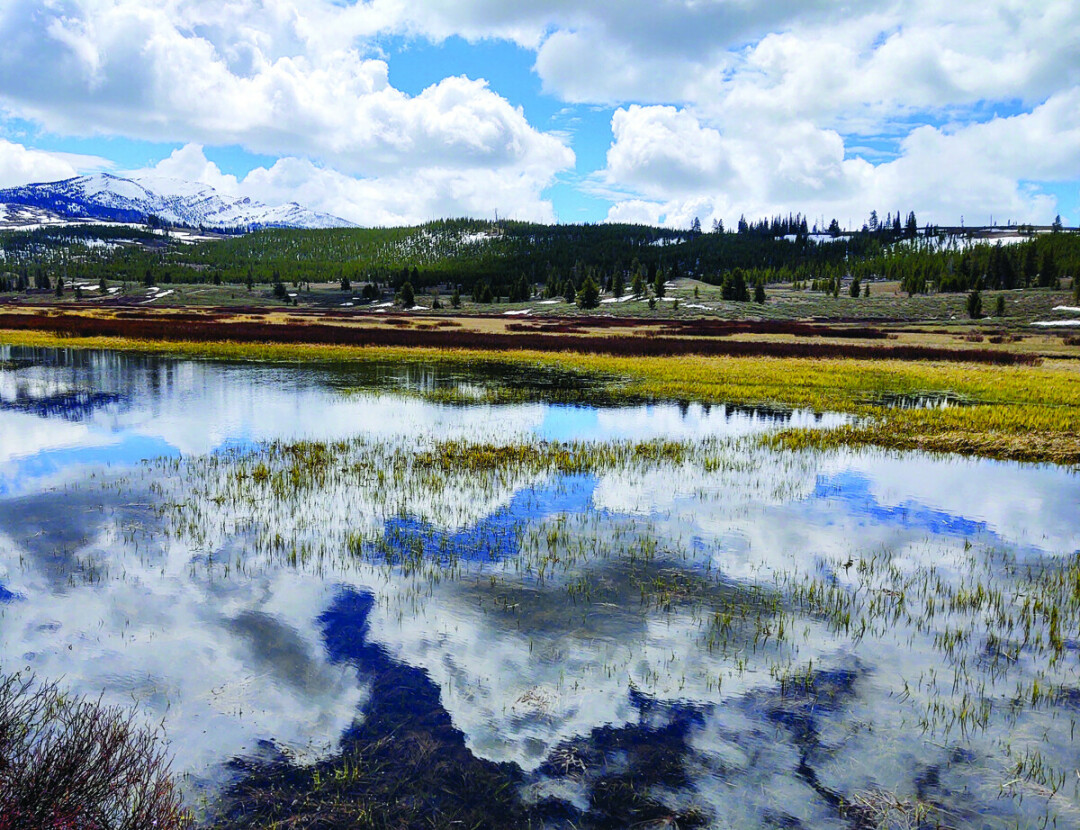Remembering Those Who Came Before Us
Peter Brancaccio | Wednesday Feb. 1st, 2023

Thank you, Mr. Bailey.
That is what I was thinking as the predawn light began to tent tively seek out the lake behind our home in the mid-autumn chill. Self-taught and uncommonly brilliant, Mr. Bailey risked everything, including his life, to live in freedom. He developed into a towering genius of cause, rhetoric, and noble purpose. Both his back and his country bore scars that would never be completely healed. But he would do his part to “Overcome Evil with Goodness.”
The sun shoots her long slender fingers across the sky. Starting in the east, the dark clouds slowly inflate with yellow, then broil into a golden-red light before suddenly spilling into the lake below. An otter cuts the cool morning lake in two like a diamond cutting across glass. She circles back to make sure that I am paying attention. I am.
I am reading an excellent book about Fredrick Douglass, by David Blight. (Douglass, who as an enslaved child taught himself how to read, was initially known as Frederick Washington Bailey.) The otter stops to watch me read. When I look up, she bobs down. When I look down, she bobs up. We spy one another with child-like curiosity. We are both enjoying this first light and this moment of solitude.
The sun pushes a little higher and a squad of brightly colored ducks paddle over. They vie for attention by becoming narcissistically loud. They flap about in circles with bold insistence and slick hairdos. Their incessant prattling is not unlike a gaggle of politicians. The otter and I are both annoyed. The ducks don’t care.
This feeling of annoyance generated by the self-preening and self-centered ducks cements the political comparison hard and fast. One hundred fifty years ago, Frederick Douglass said this about Washington, D.C.: “The moral atmosphere in Washington is rotten, full of avarice, duplicity, corruption, and trickery of all kinds.” Lincoln, who was president at the time, agreed with his assessment. We probably do too.
But here is the truth: Lincoln and Douglass did not much like one another. Not at first. These two fiercely intelligent men were wrestling with colossal and horrific problems that were global in scope. They weren’t just trying to change a nation; they were trying to change the world. The Civil War was a Second Revolution. Its outcome would reverberate around the world, and both men knew it. Douglass wrote disparagingly of the president and distrusted his policies. Originally, he even argued for a new constitution. Lincoln spoke condescendingly about Douglass. Lincoln’s position was hard and fast: “Don’t interfere with anything in the Constitution. That must be maintained, for it is the only safeguard of our liberties.” Tempers flared, harsh words were spoken, and political patience evaporated. Both men were being forged in a crucible of unimaginably intense fire. And both men were wrong about the other’s motives.
Lincoln then did something unheard of in Washington today. He listened. He focused on what Douglass was saying and began to make necessary adjustments in both his attitude and in his approach. In turn, Douglass began to grasp Lincoln’s intent and his keen logic. Both men yielded to reason, going on to embrace an intellectual flexibility based on mutual respect. Both men were willing to make adjustments without compromising their core beliefs or the Constitution. In essence, they wanted the same thing. And so, as a team, they took their first tentative steps together.
Both men developed an eloquence and command of language that allowed them to express the highest ideals in scintillatingly brilliant and unforgettable clarity—ideals that would not only transform a nation, but that would become a template for the rest of the world. In the end, Lincoln called Fredrick Douglass his friend. And Douglass came to revere Lincoln; calling his Second Inaugural address, “Almost Sacred.”
At this time of the year, deep in winter’s grip, we celebrate the birthdays of both Martin Luther King and Abraham Lincoln. As we should. King never backed down from what was necessary or what was right. The position that he took, and many of his own inspirations came not just from his own convictions, but from those who had fought for justice before him. Douglass and Lincoln were such voices. Such inspirations. King would have been the first to say so.
Good men and women will risk everything for doing what is right. And sometimes our hearts will break a little when those choices lead to sacrifices that seem too hard to bear. There is always a price for vigilance.
Life never did get easier for either Lincoln or Douglass. But they never regretted their choices. Their words and their actions continue to echo down the long halls of history. Sometimes we just need to listen.
If the ducks will let us.
| Tweet |